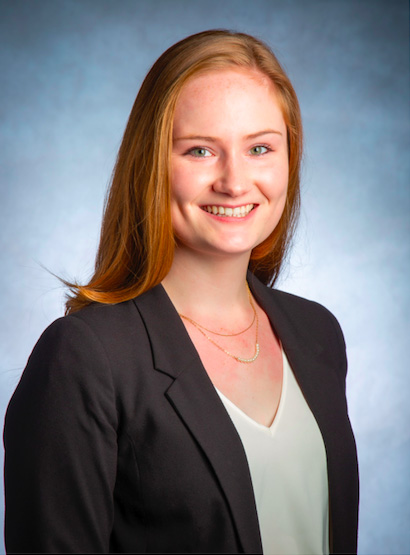Since arriving at Rhodes, Emma Thames ’21 has taken full advantage of the holistic education offered by the college, pursuing an English literature major while on the pre-med track. Heavily involved on campus and in the Memphis community, the San Antonio native knew she wanted to attend a liberal arts college in a city where she could make an impact in and out of the classroom. “My heart was set on Rhodes after visiting and experiencing the outgoing, personal, and student-focused campus culture,” explains Thames. “When I received my letter of acceptance, I was completely sold.”
Thames says that combining English with medicine was always the plan, citing Rhodes’ Foundations curriculum, which provides students the freedom to choose courses across academic disciplines that develop a broad range of skills, as a major factor in her college decision. “The Foundations courses allowed me to craft a track that was personalized and allowed for leeway. Rhodes has such a strong English department and an incredible track record for pre-med admissions; I think my decision to combine English with pre-med makes a lot of sense.”

Another benefit of her interdisciplinary track, according to Thames, is the opportunity to draw connections between the two subjects and work with committed professors who are equally curious about finding common ground between the humanities and hard sciences. “Writing essays, conducting literary research, and contributing to round-table discussions in English courses reflect well into the methodical way in which I approach science. The subjects tend to converge when you think about the ways you approach a micro-level idea and then attempt to understand it as a macro-level theory.”
Despite having to juggle the coursework of two intensive disciplines, Thames stays equally involved with her community as she has with her studies, serving as the former president of Chi Omega sorority, a teaching assistant for the First-Year Writing Seminar, a tutor at the Memphis Refugee Empowerment Program, a volunteer at Carpenter Art Garden, a research intern at Church Health, and, more recently, a virtual mentor through CovED, a program that pairs high school students with virtual tutors. Back home, Thames works to combat food insecurity with the San Antonio Food Bank, a role that has directly informed her approach to health care.
“As someone interested in health disparities, nutrition, and health care, the opportunity to work in a health-adjacent field with a long-standing nonprofit was a transformative experience,” shares Thames. “I also taught, observed, and formatted recipes for diabetes and nutritional health programs at the food bank’s main campus and partner health centers.” Thames credits her professors at Rhodes with inspiring her to explore the social side of health care, namely Associate Professor of Religious Studies Kendra Hotz and her “Faith, Health, and Justice” course. “I recommend this course to everyone going into health care. It’s an excellent introduction to understanding social determinants of health care as well as structural inequalities in the system.” Thames adds that her English Senior Seminar on “Empire in American Literature,” taught by Associate Professor of English Jason Richards, allowed her to combine her love for both the humanities and sciences. “Through this course, I was able to write a paper using literary theory and apply it to reproductive rights and modern health care. It was a wonderful capstone to my studies.”
Thames plans to spend the next chapter of her life at The University of Texas McGovern Medical School in Houston, using her experiences in Memphis to continue striving for meaningful change. “My exposures both here and in San Antonio have inspired me to want to go into primary care, because I believe it has the most potential to help underserved communities. Medicine is not just about the body; it’s about society, history, policy, and advocacy. I believe this knowledge will make me a better physician.”
By Sam Brown '21
